Returning to Vietnam for a few days, the Delegation flew to visit Mongolia - the vast steppe country in the North; then flew to the South to visit the Republic of Ireland; then returned to Paris - the "city of light" of Europe to attend the Conference of the Francophone Community; then paid an official visit to the French Republic at the invitation of President Macron.
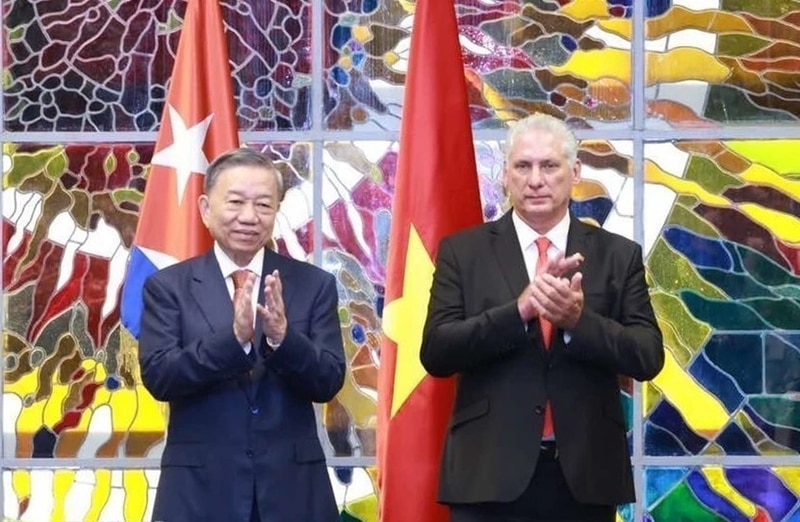 |
| General Secretary andPresident To Lam holds talks with First Secretary and President of Cuba Miguel Diaz Canel Bermudez. Photo: VNA. |
Prioritize relations with neighboring countries and traditional, loyal friends
Following the places the Vietnamese delegation visited, someone curiously asked: "In this foreign trip, why did our delegation choose to visit Mongolia first, a country with only about 3.5 million people, not rich in resources, and one of the resources that many people know about is the main product processed from sheep?"
Let's put aside the discussion of whether that country is rich or poor, but what needs to be noted is that the Vietnamese people have a tradition of valuing love and loyalty, always remembering actions that demonstrate the awareness of "a bite of food when hungry is worth a bundle when full", typically when our people fought against the invading American imperialists with strong soldiers and generals, pouring bombs and bullets on Vietnam, it was during those difficult and painful days that the Mongolian people used trains to transport tens of thousands of sheep to Vietnam with the heart to help our people and soldiers have more food sources to supplement their fighting strength against foreign invaders.
This time, with the highest leader of our Party and State visiting Mongolia, it is a vivid manifestation of the "bamboo diplomacy " policy with Vietnamese identity, which prioritizes relations with neighboring countries and traditional friends, who have been loyal to Vietnam through the complex changes of the contemporary world.
In that direction, before attending the United Nations Summit, General Secretary and President To Lam visited Laos, Cambodia, and China; then warmly welcomed General Secretary and President of China Xi Jinping; then welcomed Russian President Putin to visit Hanoi ; and recently, on October 12, 2024, Vietnam welcomed Chinese Prime Minister Li Qiang to visit.
That consistently demonstrates the foreign policy of independence, self-reliance, diversification, and multilateralization. Vietnam is a friend to all countries, regardless of whether they are big or small, rich or poor, as long as they have the goodwill to cooperate with Vietnam for the benefit of both sides.
On the way to the goal of "rich people, strong country", although having achieved great and comprehensive achievements, there are still many difficulties and challenges. Vietnam still firmly adheres to the policy of being a responsible member of the international community, joining hands to solve the great problems of humanity.
In addition to providing food and medicine to countries in distress and difficulty due to ethnic conflicts or wars, Vietnam has sent nearly ten volunteer troops to the Middle East and Africa to participate in peacekeeping, overcoming the consequences of hostilities and natural disasters, providing food, medicine and other necessities, which have been welcomed and highly appreciated by international public opinion!
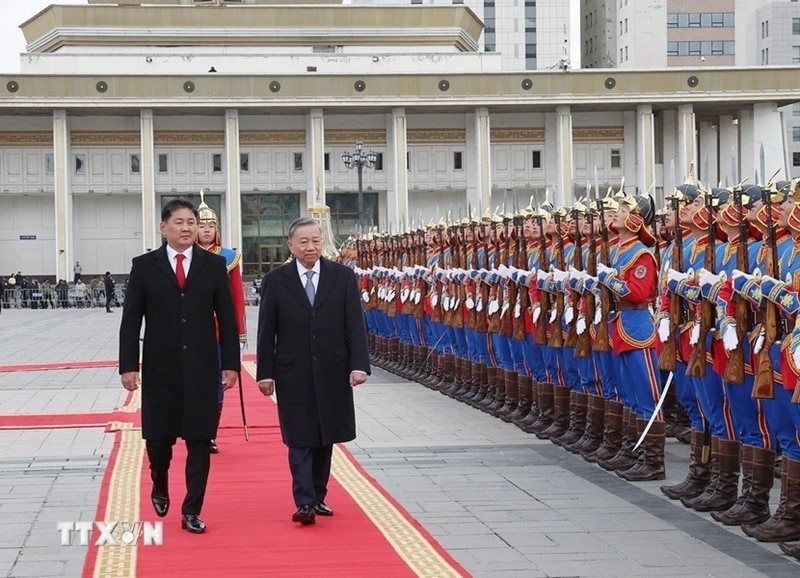 |
| Mongolian President Ukhnaagiin Khurelsukh hosted a ceremony to welcome General Secretary and President To Lam. Photo: VNA. |
“Bamboo Diplomacy” – Uniqueness in connecting and expanding allies
I carefully read the article in the Chosun Ilbo newspaper (Korea) published on October 10, 2024 commenting on the visit to the French Republic by General Secretary and President To Lam with the headline that attracted special attention: "Eliminate old enmities, connect allies".
The article said that the close relationship between Vietnam and France has recently attracted the world's attention because in the past, the two countries were bound by the dark history of colonialism. France's colonial rule over Vietnam began with the French invasion of Indochina in 1858 and lasted for a century.
The article emphasized: “The colonial regime ended when the communist forces led by President Ho Chi Minh defeated the French army in the Dien Bien Phu battle that shocked the world in 1954. After the defeat in this battle, France's influence in the Third World, including Asia, Africa and the Middle East, rapidly declined. It was a painful history for France.”
According to the article, the close relationship between Vietnam and France, with the two countries upgrading their relationship to a Comprehensive Strategic Partnership, is the result of Vietnam’s adjustment of interests in controlling the influence of major powers through support from France in Europe. In turn, these major powers are also seeking to restore their influence in the Indo-Pacific region.
The article considers the success of the visit also related to the East Sea issue, reflected in the Joint Statement of the two Vietnamese and French leaders adopted after the summit on October 7 between French President Emmanuel Macron and General Secretary and President of Vietnam To Lam at the Elysée Palace in Paris. The two sides agreed to ensure peace, stability, safety and freedom of navigation and aviation based on international law, including the United Nations Convention on the Law of the Sea (UNCLOS 1982).
The article asserted, “Vietnam has achieved another result through its unique “bamboo diplomacy” in pursuit of practical national interests.”
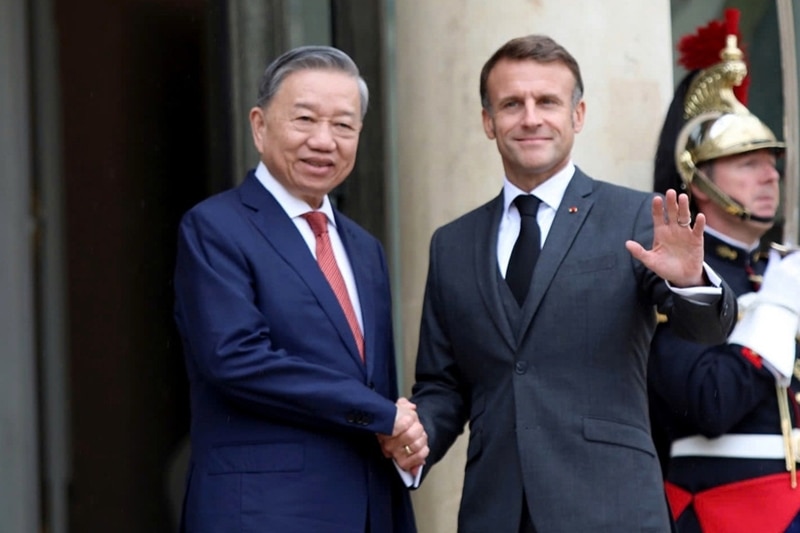 |
| French President Emmanuel Macron welcomes General Secretary and President To Lam. Photo: Minh Nhat |
Meanwhile, the Russian newspaper Kommersant (Businessman) has an article stating that with "bamboo diplomacy", including Vietnam balancing relations between key countries in the world such as the US, China and Russia, it has just had a new achievement when upgrading relations with France to the level of Comprehensive Strategic Partnership.
“For France, upgrading relations with Vietnam, especially in the defense sector, has become a clear aid to the implementation of its Indo-Pacific strategy.
The document from 2019 aims to protect Paris’ strategic interests, first of all freedom of navigation in the region, where about 1.65 million French citizens live in its overseas territories. With the same aim, France has begun negotiations with the Philippines on a joint access agreement that would allow the two countries’ militaries to conduct exercises on each other’s territory. It is not without reason that the Joint Statement of the leaders of France and Vietnam demonstrates the commitment of both countries to maintaining peace, security and stability in the East Sea.”
The article pointed out that, “for Vietnam, upgrading relations with France is a new step towards consolidating its multi-dimensional foreign policy in practice. Vietnam has long pursued a policy of deepening relations with important powers in the region and the world, not being aggressive with anyone and maintaining a neutral attitude. This type of diplomacy is called “bamboo diplomacy” by the Vietnamese government.”
The article continued: “For many years, Vietnam’s Comprehensive Strategic Partnership consisted of only three countries: China (since 2008), Russia (since 2012) and India (since 2016). However, in the past two years, the number of partners with the highest diplomatic status with Vietnam has increased rapidly. In December 2022, South Korea became the new country with this status; then, Vietnam upgraded relations with the US in September 2023, followed by Japan, Australia and now France.
Importantly, while upgrading relations with the US and its allies, Vietnam has not damaged its relations with countries that the US considers geopolitical rivals such as China, Vietnam's important economic partner; Russia is Vietnam's largest arms supplier and an important partner in the energy sector.
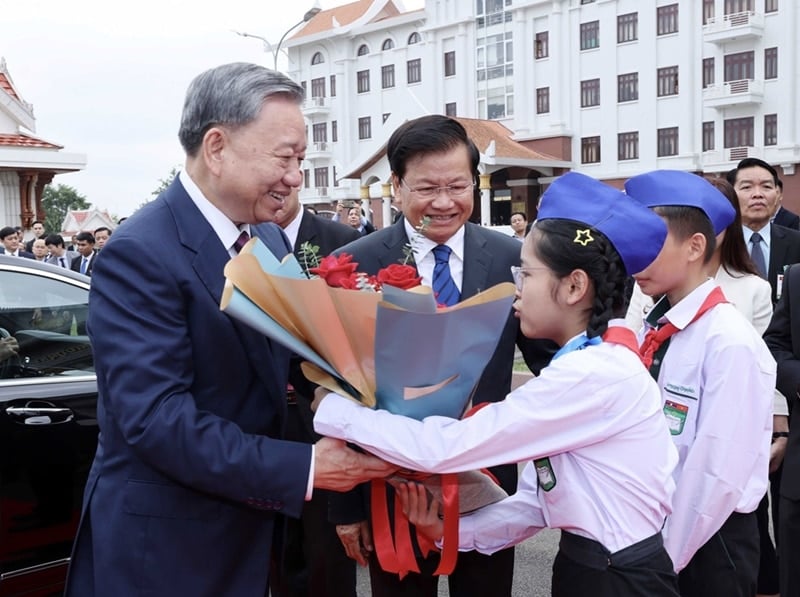 |
| Children in the capital Vientiane presented flowers to welcome President To Lam. Photo: VNA |
Smart, strategic move
RFA, on October 7, said that “in addition to economic cooperation, innovation and many other contents, the Vietnam-France Joint Statement emphasized the East Sea issue and security and defense cooperation between the two countries. This seems to be the first time Vietnam has directly mentioned defense cooperation with a Western power.”
The article commented: “With this move, Vietnam has upgraded its relations with most permanent members of the United Nations Security Council. The article asked, why did Vietnam upgrade its relations with France at this time? Why were the East Sea and defense and security emphasized in the Joint Statement?”
The newspaper quoted lawyer Vu Duc Khanh, visiting professor at the University of Ottawa (Canada), an expert on Vietnamese politics and international relations, as saying: “The fact that Vietnam for the first time emphasized security-defense relations and military-industrial cooperation with a Western country, specifically France, can be considered an important strategic turning point. This reflects Vietnam’s efforts to reduce its dependence on weapons and military strategies from Russia and China, and at the same time demonstrates its desire to expand and diversify its defense partners.”
The article concluded: “Vietnam’s decision is a wise and strategic move to reduce dependence on traditional partners, diversify supply sources and enhance defense capabilities.”
Coming here, we understand more clearly that it is not by chance that countries recognize Vietnam's cleverness and flexibility in its "bamboo diplomacy" policy; it is even more so by chance that we see the increasingly spectacular success of this policy.
According to the law of nature, bamboo trees can stand firm through storms, rain and sunshine because their roots are deeply rooted in the ground, receiving nutrients, and thus their trunks can grow tall and strong. According to the law of social movement, the "land" for bamboo trees to stand firm and strong, and spread their luxuriant canopy, is the great achievement of nearly 40 years of implementing the Platform for comprehensive national renovation initiated and led by our Party, which has been supported and enthusiastically implemented effectively by all classes of people thanks to knowing how to closely combine internal and external forces. That is the solid foundation for our entire Party, people and army to confidently enter a new era - the era of the Vietnamese nation's rise!
We unanimously follow Uncle Ho's advice:
"Only when the roots are strong can the tree last."
Building victory on the people's foundation".
For the greater good, Vietnam has been making its "diplomatic bamboo" have a solid root and a strong trunk so that the canopy will be luxuriant with branches and leaves, spreading its shade more and more widely, contributing to "cooling down" the rising global issues, turning the "impossible" into the "possible"!




![[Photo] Ho Chi Minh City holds funeral for former President Tran Duc Luong](https://vphoto.vietnam.vn/thumb/1200x675/vietnam/resource/IMAGE/2025/5/24/9c1858ebd3d04170b6cef2e6bcb2019e)
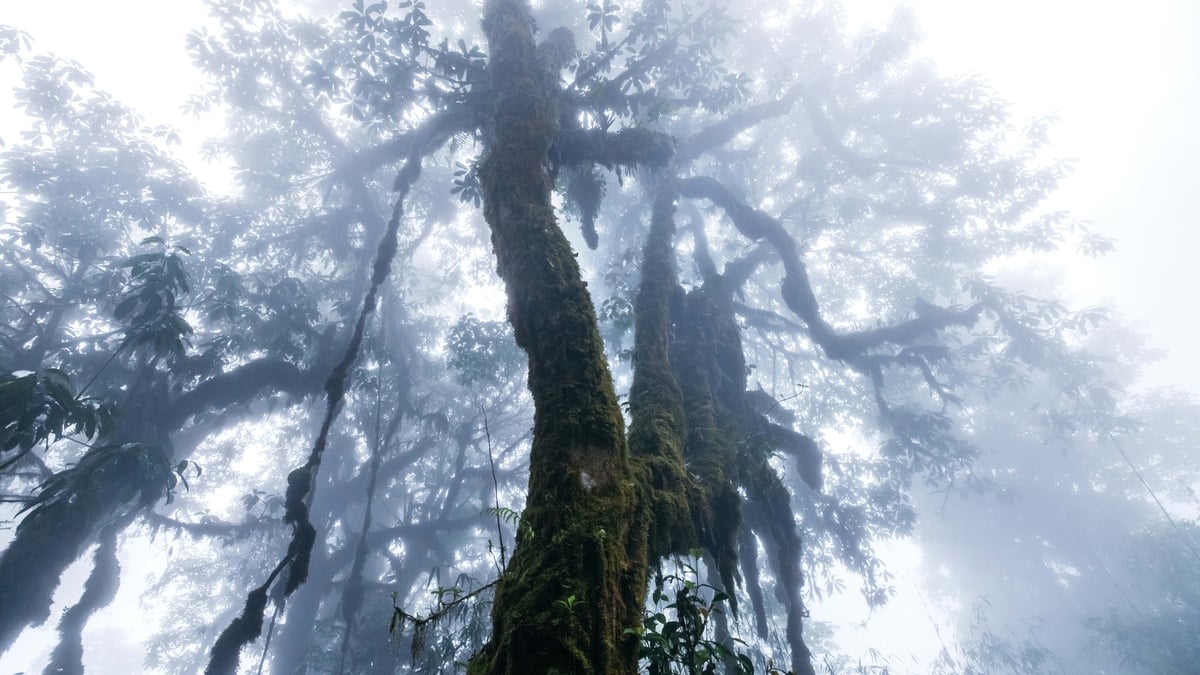

![[Photo] The Government Standing Committee works with ministries and branches on the real estate market situation.](https://vphoto.vietnam.vn/thumb/1200x675/vietnam/resource/IMAGE/2025/5/24/e9b5bc2313d14c9499b8c9b83226adba)

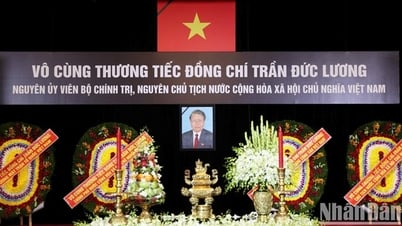
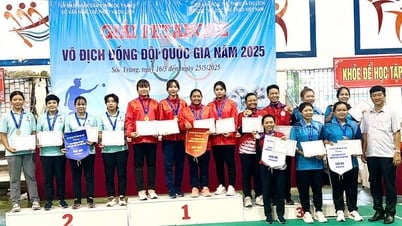
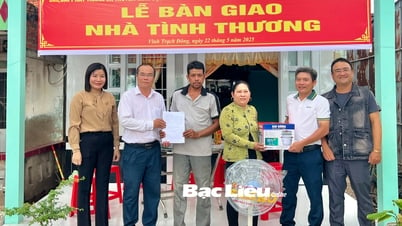
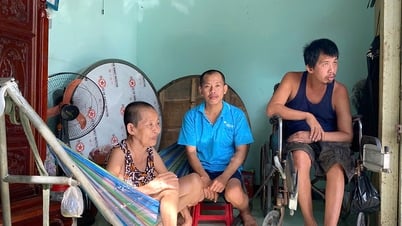
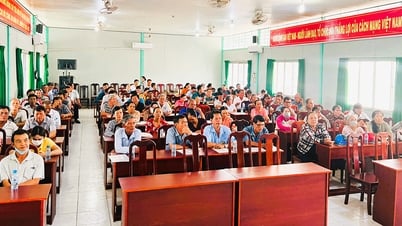







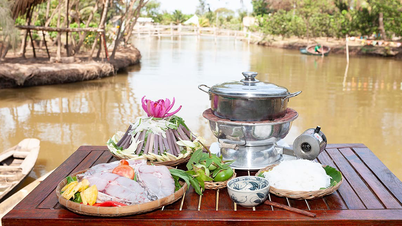
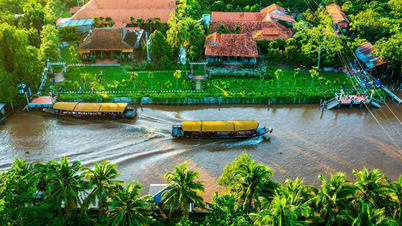
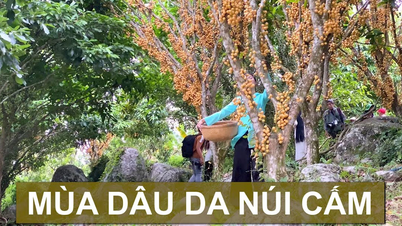
![[Photo] Party and State leaders visit former President Tran Duc Luong](https://vphoto.vietnam.vn/thumb/1200x675/vietnam/resource/IMAGE/2025/5/24/960db9b19102400e8df68d5a6caadcf6)
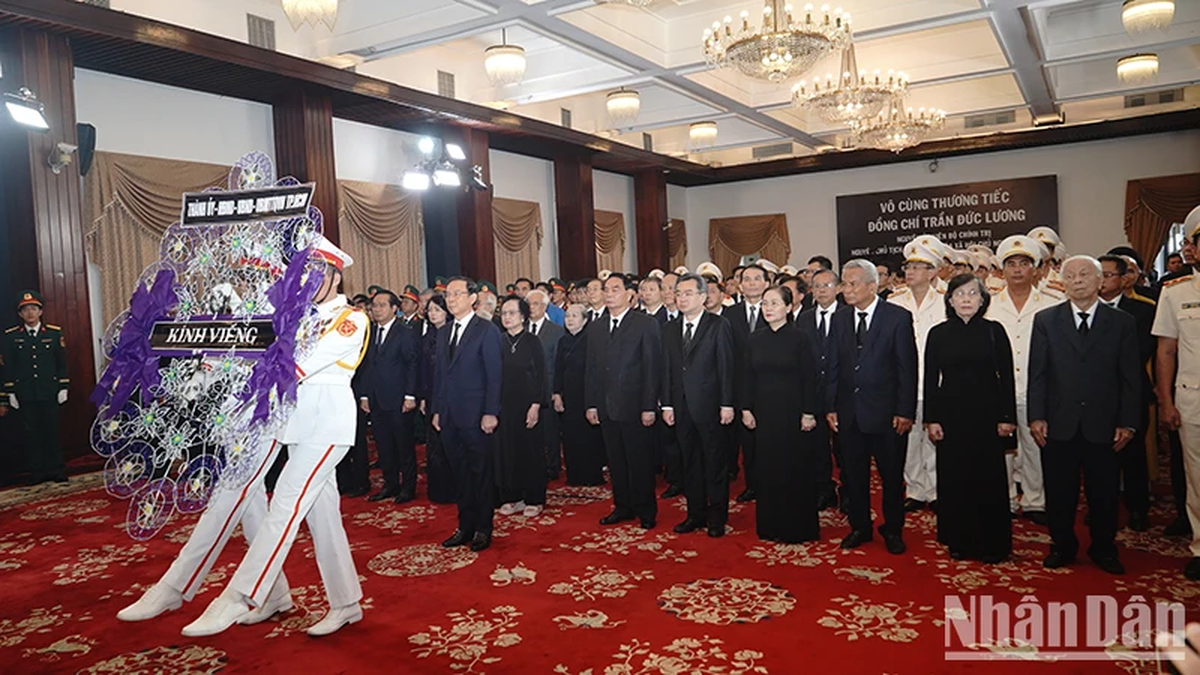
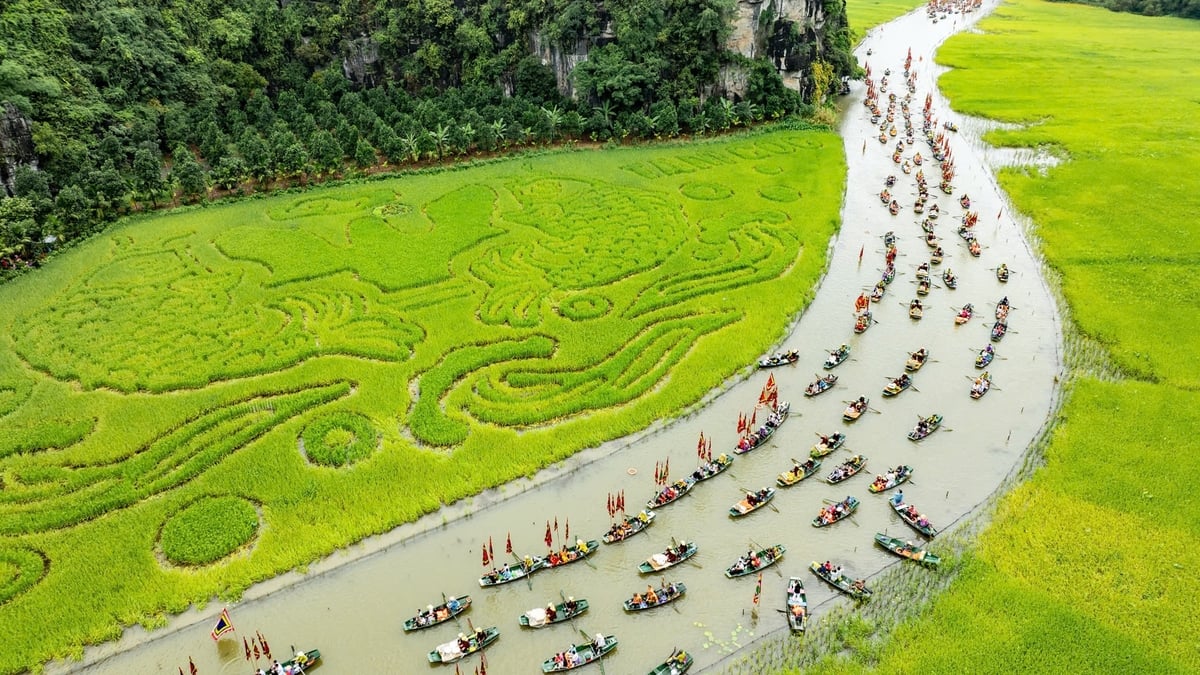
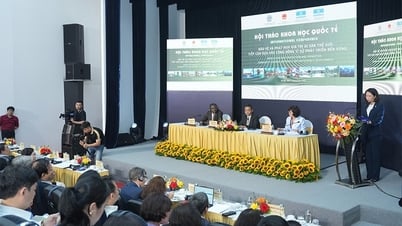



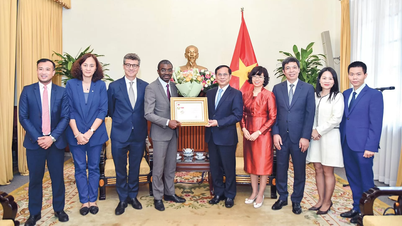



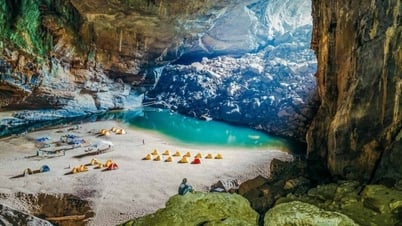



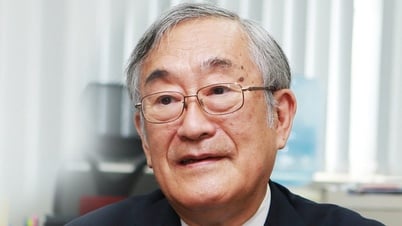

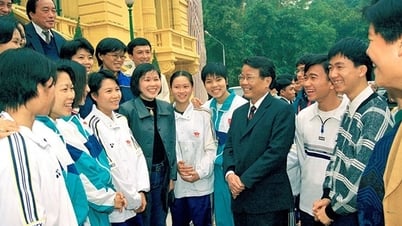

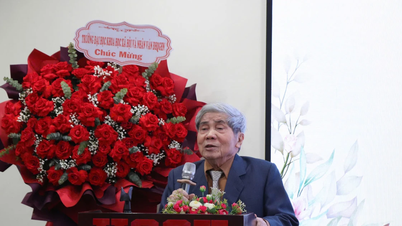












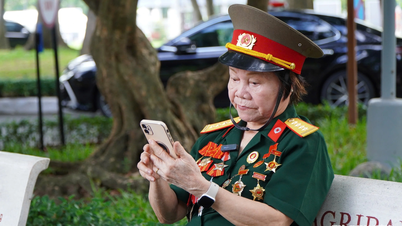
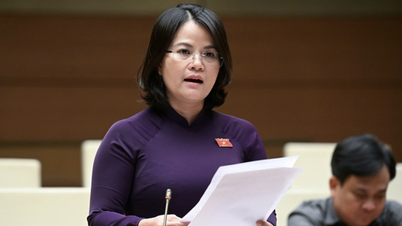
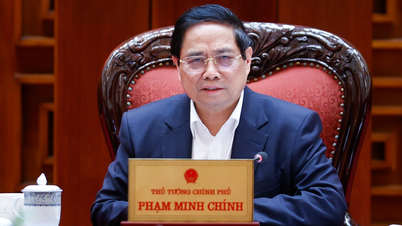
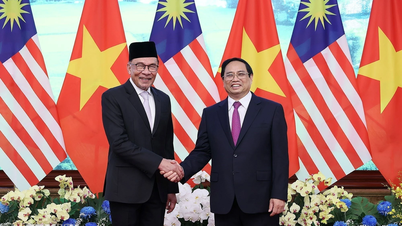
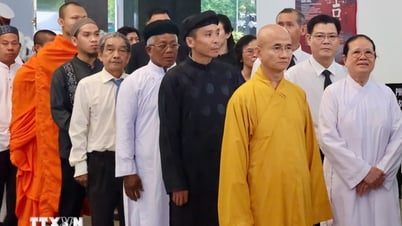
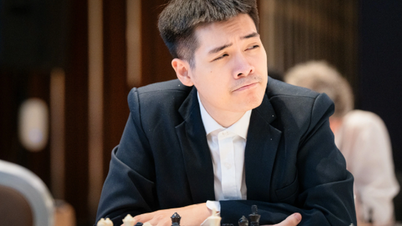







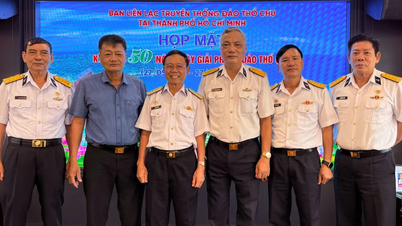



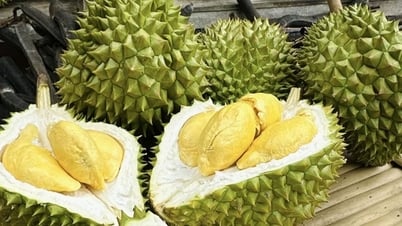

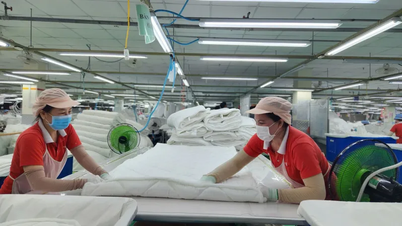
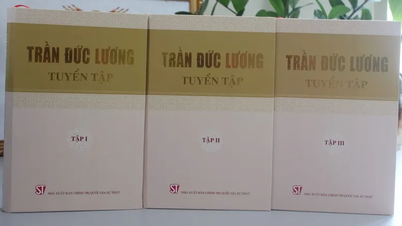













Comment (0)